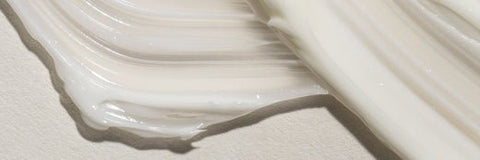Derived from the flowers, leaves, seeds, and roots of various plants from all over the world, plant-based oils are often potent while remaining relatively gentle and provide an endless assortment of skincare benefits. They can help with everything from calming and moisturizing skin, to boosting your anti-aging routine.
If you're new to the plant-based skincare game, we're here to help. We've outlined some of the best oils for skin and explain what they do, how to use them, and offer a few handy tips.
Grapeseed Oil
Ingredient Category: Emollient
Main Benefit: Bursting with antioxidants and fatty acids, grapeseed oil is excellent for brightening and protecting. Due to its non-greasy texture, it just might be the best oil for faces that produce excess sebum.
Look For It In: Prince Charcoal Detox Mask, Just Dew It Hydrating Serum, Nectar of the C Vitamin C Serum, H2 Oh Yeah Hydrating Moisturizer, and Crème de la Cream Brightening Moisturizer.
First up is grapeseed oil, a lightweight, fast-absorbing byproduct of the winemaking industry. It's packed with omega-6 fatty acids, vitamins, minerals, and antioxidants.
Grapeseed oil also boasts compounds like beta carotene, vitamins C and D, and polyphenols that help protect against environmental aggressors.This silky substance is non-greasy and non-comedogenic, making it a top contender for the 'best face oil for oily skin' award. It's also ultra-moisturizing, softening rough skin with nutritive fatty acids and a generous dose of vitamin E.
How to Use Grapeseed Oil for Skin:
You can use grapeseed oil on the face and body in its pure form, which is easy to find at most grocery and drugstores. Just make sure it's cold or expeller pressed so you get the most benefits. Apply it as an overnight serum before bed, add a few drops to your moisturizer, or create DIY spot treatments and masks. Grapeseed oil pairs well with a variety of ingredients and other natural oils.
Rosehip Oil
Ingredient Category: Emollient
Main Benefit: Deeply nourishing, rosehip oil is a powerful moisturizer and smoother ideal for incorporating into an anti-aging routine.
Look For It In: Prince Charcoal Detox Mask and ‘A’ Game Retinol Serum.
Harvested from the fruit and seeds of the rose plant, rosehip oil is rich in vitamins A, C, and E, trans-retinoic acid, antioxidants like lycopene and tocopherol, and essential fatty acids. It's widely considered one of the best oils for glowing skin.
Rosehip oil promotes an even skin tone by working to minimize the appearance of discoloration, scars, and redness. It's also naturally cleansing and helps reinvigorate and plump dull, tired skin by smoothing and softening texture.
How to Use Rosehip Oil for Skin:
You can apply pure, unrefined rosehip oil by massaging 2-3 drops into the skin morning and/or night. It also makes a great addition to many moisturizers and face cleansers, nourishes cuticles, and is excellent for removing makeup. Just don't use it on broken skin or blemishes, as it could irritate them further.
Coconut Oil
Ingredient Category: Emollient + Occlusive
Main Benefit: Those with dry and rough skin will love coconut oil for its intensely moisturizing properties and soothing effect.
Look For It In: So Clean! Facial Cleanser
The best oil for dry skin woes, coconut oil is one of the hardest working moisturizers in the natural oil family. Made from the white, fleshy insides of coconuts, it boasts a light, tropical smell and uses its abundance of medium-chain fatty acids to reduce dryness and help skin retain moisture.
It's also a great smoothing treatment for rough, flaky areas like the elbows, tops of the hands, and heels. Due to its thicker viscosity, it creates a protective barrier that helps shield skin from environmental toxins, dirt, and grime.
How to Use Coconut Oil for Skin:
Coconut oil is great for the entire body and face; if you have oily skin, stick to using it as a cleanser rather than a moisturizer. You should also opt for an organic, virgin, cold-pressed variety, as it's the least processed choice.
This oil is solid at room temperature but warms quickly when you rub a small amount between your palms. You can use it to cleanse your face, as a base for exfoliants, and as a moisturizer for the entire body.

Jojoba Oil
Ingredient Category: Emollient
Main Benefit: Similar to the sebum our skin naturally produces, jojoba oil works wonders by preventing moisture loss and balancing natural oils.
Look For It In: Nectar of the C Vitamin C Serum, Just Dew It Hydrating Serum, ‘A’ Game Retinol Serum, H2 Oh Yeah Hydrating Moisturizer, Prince Charcoal Detox Mask, Youth Fairy Retinol Moisturizer, and Crème de la Cream Brightening Moisturizer.
Hailing from the seeds of a perennial shrub that grows in the Southwest, jojoba oil is a liquid wax ester that's lightweight, colorless, and odorless. One of its main claims to fame is its wealth of numerous restorative fatty acids.
In addition to moisturizing skin without weighing it down, jojoba oil absorbs quickly and alleviates the look of temporary redness. It might seem counterintuitive, but because this oil mimics natural sebum so well, it signals to your skin that it doesn’t need to make more. This superpower is especially ideal for those who struggle with complexions that are both oily and dry, making it the best face oil for combination skin types.
How to Use Jojoba Oil for Skin:
100% pure jojoba oil that's free of additives and toxins can nourish the entire body and face. You can directly apply a few drops to your skin, with the most opportune time being right after a shower. It's also a staple in many skincare products, like serums, masks, cleansers, and more.
Marula Oil
Ingredient Category: Emollient
Main Benefit: Rich in fatty acids, including palmitic and stearic acid, marula oil is a top-notch moisturizer that seals in hydration and softens.
Look For It In: Serums, Hair Treatments, Facial Oils
Derived from the nuts, seeds, and fruit of the marula tree — which is native to sub-Saharan tropical Africa — marula oil is a light yellow substance with a subtle nutty scent.
This lightweight oil is an emollient with occlusive properties, which means it fills in cracks in the skin to soften while forming a light barrier that seals in moisture.
It's non-comedogenic, so it doesn't clog pores and is rich in fatty acids and antioxidants like vitamins C and E and the phytochemical epicatechin. It's also the best oil for face wrinkles, thanks to its mix of potent antioxidants and amino acids, such as glutamic acid and L-arginine.
How to Use Marula Oil for Skin:
Marula oil is kind to all skin types and can be applied in its pure form or mixed in serums, spot treatments, and moisturizers. Avoid refined marula oil in favor of the pure or virgin variety and feel free to layer it over active ingredients to help seal them in.
Evening Primrose Oil
Ingredient Category: Emollient
Main Benefit: The best oil for blemishes, evening primrose oil supports overall skin health and is great for plumping, smoothing, and calming.
Look For It In: H2 Oh Yeah Hydrating Moisturizer and Youth Fairy Retinol Moisturizer.
Coming from the evening primrose plant, evening primrose oil has a particularly high amount of gamma-linolenic acid (GLA) and other essential fatty acids. It can reduce the appearance of occasional redness and wrinkles and is intensely moisturizing.
Evening primrose oil is also known to help cleanse clogged pores, diminishing their appearance, which makes this citrusy-scented oil a solid choice for those with oily skin types.
How to Use Evening Primrose Oil for Skin:
Evening primrose is also known as the "king's-cure-all" for its restorative properties, so it's ideal to apply at night while your skin is repairing itself. It works extremely well in conjunction with other nourishing botanicals and ingredients, so look for it in your skincare products.
You can apply this oil in its pure form, but it has a short shelf life and is prone to oxidation. Take care to get fresh, unrefined oil that has never been heated and keep it stored in a cool area away from direct light.
These nourishing oils are perfect for any skin type to start experimenting. We strongly suggest always doing a patch test when trying out new substances on your skin to make sure they agree with you. After all, healthy skin is happy skin!
Whether you're looking for the best oil for anti-aging or something to tackle intense dryness, Mother Nature has you covered with these natural wonder oils.












